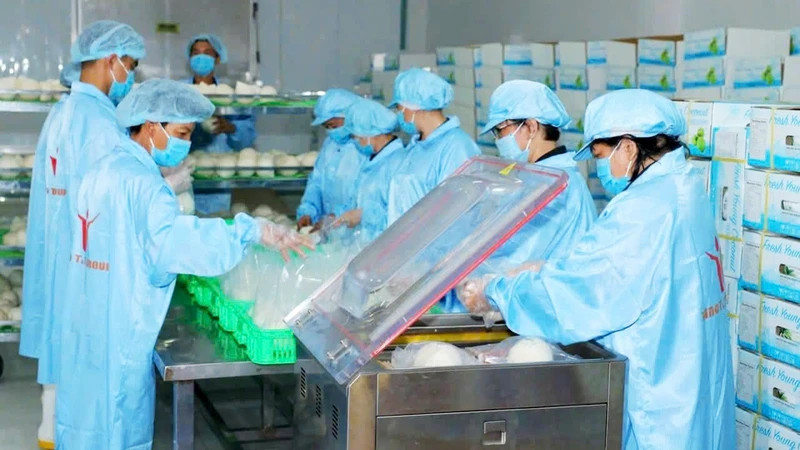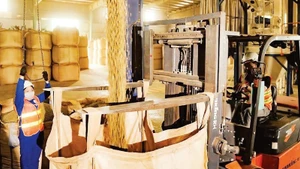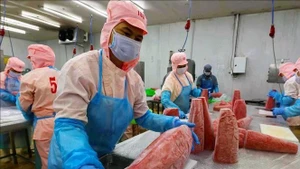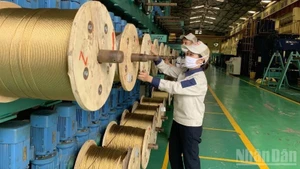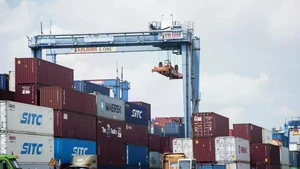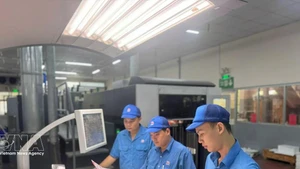Challenges in handling information
Ngo Xuan Nam, Deputy Director of the Viet Nam Sanitary and Phytosanitary Notification Authority and Enquiry Point (Viet Nam SPS), reported that in the first two months of 2025, the EU issued eight warnings concerning novel foods, of which Viet Nam received four. In 2024, Viet Nam only received one warning in this category.
Overall, the EU has issued 114 warnings for Viet Nam’s agricultural, aquatic, and food products in 2024 and 16 warnings in the first two months of 2025.
The main causes stem from Viet Nam’s production and farming areas, including risks such as the maximum residue limit (MRL) of pesticides, antibiotic overuse in aquaculture, polluted farming environments due to pesticide and fertiliser use in agriculture, and non-compliance with importers’ regulations since MRL levels vary by substance and product.
By locality, data from Viet Nam SPS showed that Ho Chi Minh City received the highest number of warnings in 2024 with 42 (36.8%), followed by Ha Noi with 10, Tien Giang with 9, and Khanh Hoa with 7 warnings.
Given the situation, the Viet Nam SPS issued Official Letter No. 02/SPS-BNNVN requesting reports on the handling of warnings by January 24, 2025.
However, as of February 20, 2025, only 63 out of 114 warnings from 2024 (55.3%) had reported resolution results. The remaining 44.7% had no feedback, raising risks that enterprises may fail to improve food safety issues and continue facing export risks to the EU.
Currently, the EU utilises a four-step procedure for handling warnings about unsafe products, with product recall and destruction being the most severe measures.
In 2024, 21.9% of cases by Vietnamese exporters (25 out of 114 warnings) involved recalls; in the first two months of 2025, this rate rose to 56.3% (9 out of 16 warnings).
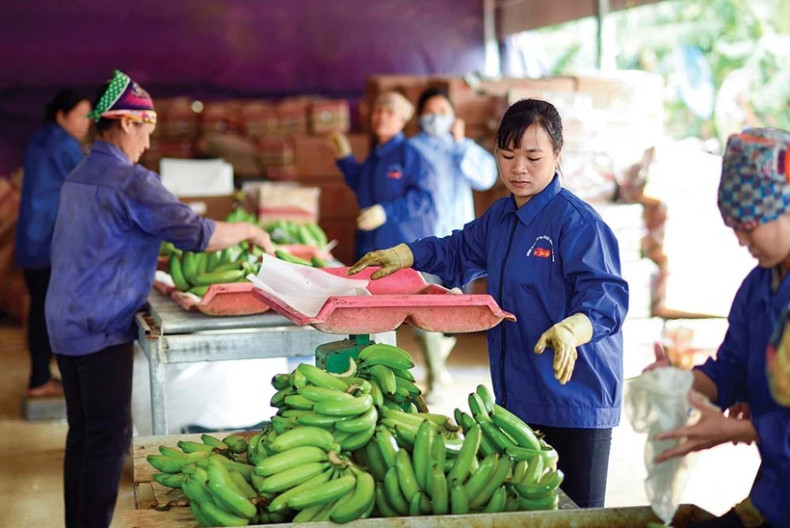 |
| In 2024, Viet Nam’s agricultural export turnover to the European Union (EU) reached over 4.2 billion USD. (Photo: baodautu.vn) |
Promoting the implementation of the SPS project
On June 19, 2024, the Prime Minister approved Decision No. 534/QD-TTg endorsing the project on improving the efficiency of the implementation of the WTO’s Agreement on the Application of Sanitary and Phytosanitary Measures, or the SPS Agreement, and SPS commitments within free trade agreements (FTAs).
The project aims to strengthen Viet Nam’s capacity to fulfil SPS obligations under WTO and FTAs in the international trade of agricultural, forestry, aquatic products, and food.
It focuses on tightening the management, evaluation and testing capacity to support businesses in observing SPS regulations set by export and import markets; maximise investment opportunities for WTO members; and expand markets for Vietnamese agro-forestry-aquatic products and food.
The project sets a target that the rate of national standards and technical regulations on agro-forestry-aquatic food safety equivalent to international standards will reach 70% by 2025, all personnel in food safety and animal and plant quarantine management will receive training, and a national SPS portal will be formed.
Also, by 2025, information exchange among cooperatives, businesses, associations, management agencies in localities and the national SPS system will be stepped up through a database.
However, the project’s implementation remains slow, with only 18 out of 63 provinces and cities (28.5%) having developed implementation plans by March 2025. This indicates local authorities are not yet fully engaged with SPS-related issues, necessitating an intensified focus to better support enterprises in meeting EU food safety requirements.
Recommendations for enterprises and authorities
Nguyen Anh Duy, Chairman of Thanh Nien Global Trading Joint Stock Company, emphasised the need to enhance information updates and disseminate new EU standards to producers, cooperatives, and enterprises.
Authorities should provide detailed guidance on export procedures, labelling, and food safety certification for processing and packaging facilities to facilitate compliance.
Additionally, relevant agencies should compile specialised manuals on SPS compliance by market segment, build databases, and share SPS information by product group.
It is also important to raise stakeholders’ awareness of the SPS measures, strengthening the capacity of analysing and assessing risks of food safety hazards and diseases, harmonising domestic SPS regulations with international ones, and consolidating the national SPS system.
Since most agricultural and food exports originate from southern provinces, the Viet Nam SPS should establish regional information focal points and organise more forums in the southern region to help regional enterprises promptly update and respond to new export market regulations, enabling timely solutions and effective implementation.
To safeguard and expand Viet Nam’s agricultural exports to the EU, urgent and coordinated efforts are required to comply with evolving EU food safety regulations through improved information management, capacity building, and strengthened SPS implementation at all levels.
